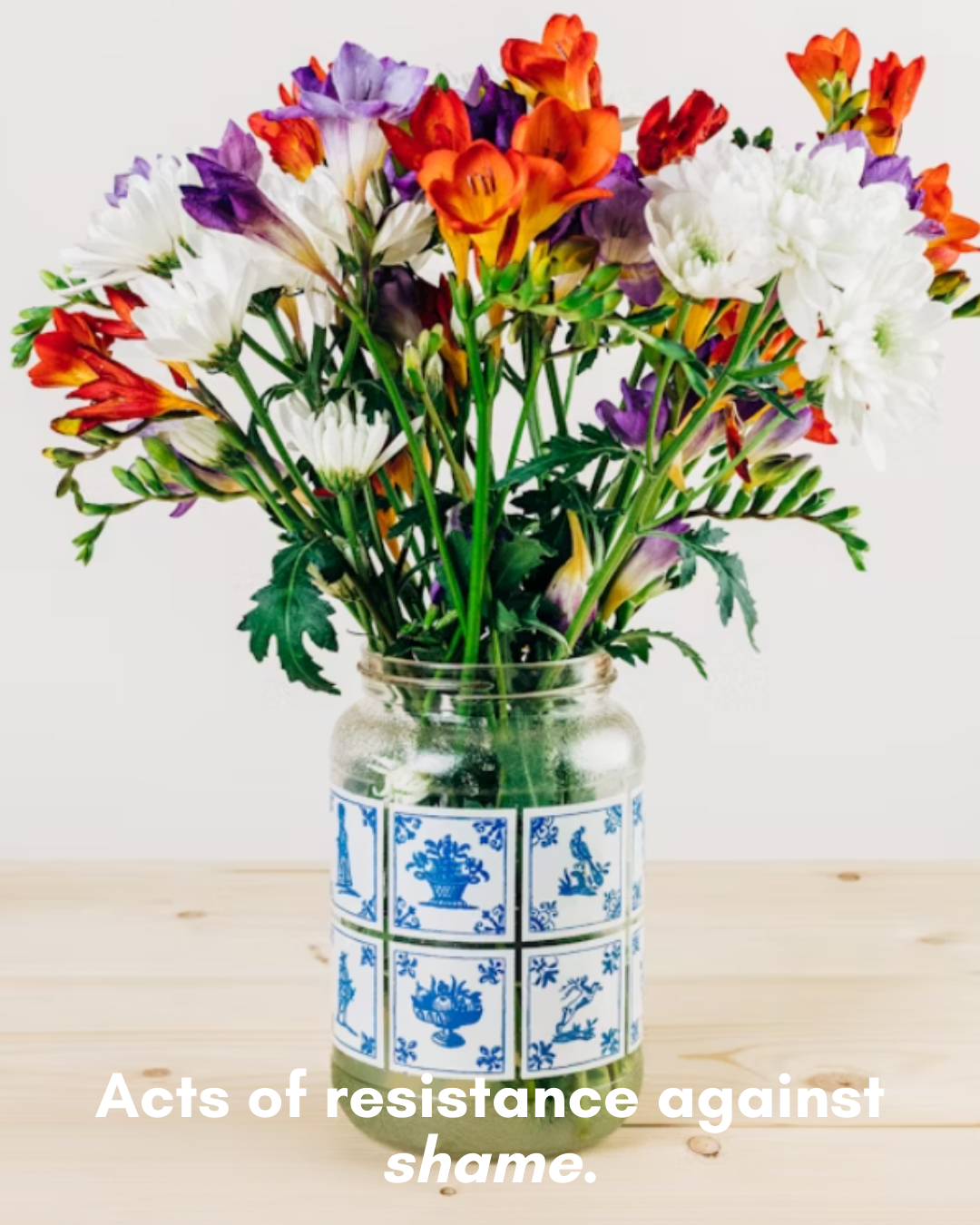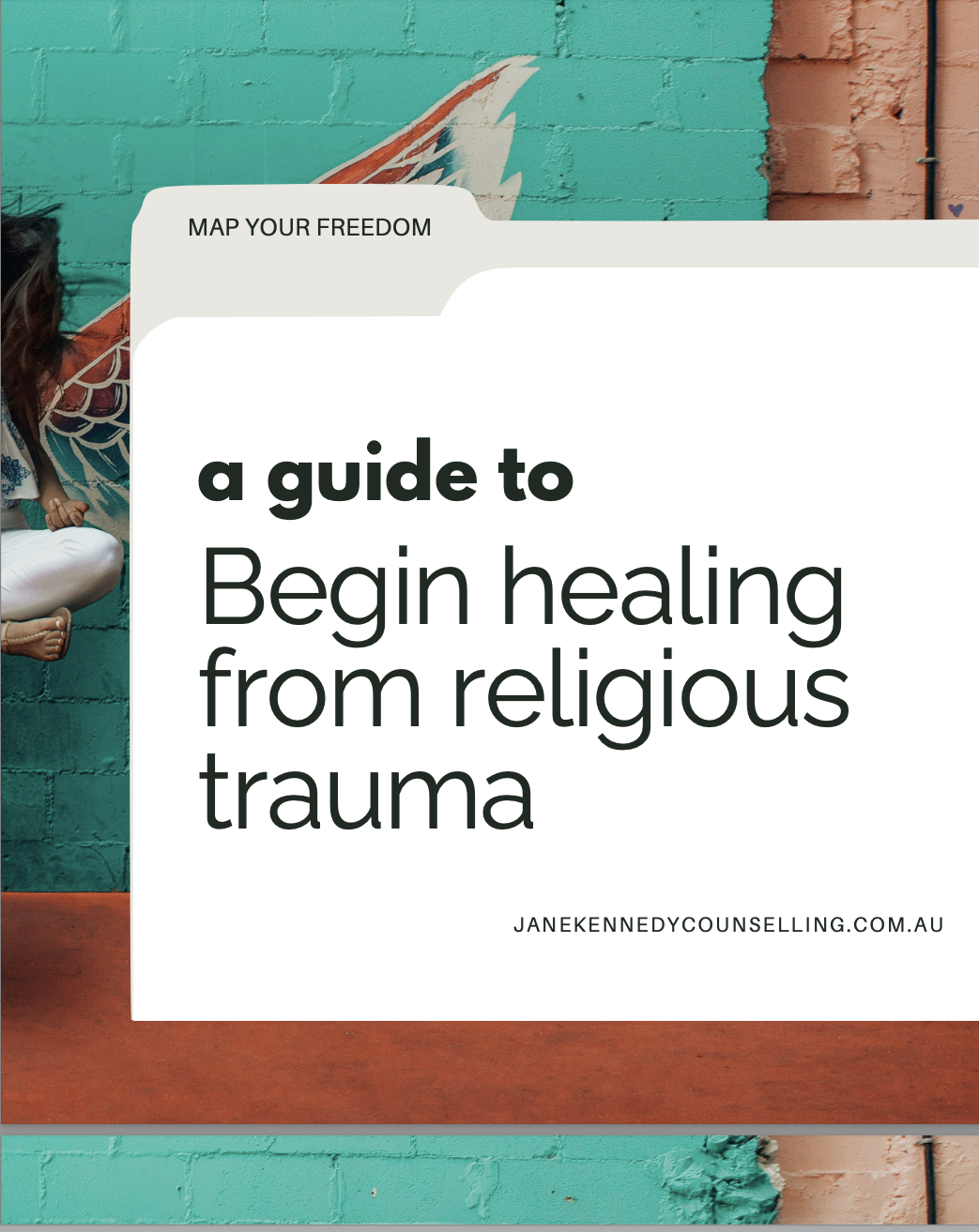Shame is a gnarly little feeling. It’s slippery, insidious, and can be debilitating if left unchecked. I’ve written before about full-bodied shame spirals, the kind that seem to take over your whole nervous system. You know the ones: your chest tightens, your stomach drops, and suddenly you’re replaying old failures or words you wish you could take back. I know many of you have lived through these spirals too.
Shame is different from guilt. Guilt tells us we’ve done something wrong; shame says that we are wrong. At its worst, it convinces us that we are bad at our core, that humiliation is permanent, that we are beyond repair. Shame insists that we deserve people’s, or even God’s, displeasure and that no matter what we do, we’ll never be enough.
Every culture, every religion, carries its own story of brokenness. Each tells us, in one way or another, that we are in need of fixing. Maybe you grew up hearing this explicitly from a pulpit, a parent, or a teacher. Or maybe you absorbed it in subtler ways; through comments about your body, expectations around success, or unspoken rules about what it means to “belong.” Even those raised in secular homes aren’t immune; cultural narratives about worth, achievement, beauty, and conformity seep into us all.
At some point, shame enters our personal story. It might creep in quietly, through an offhand remark from someone we trusted. Or it might slam into us during a moment of rejection, bullying, or failure that seared itself into our memory. If you pause for a moment, you might notice:
- Do you know when shame first showed up for you?
- Can you recall who handed it to you, intentionally or not?
- Who or what reinforced the message over the years?
- And now, when does shame still raise its head?
These questions aren’t meant to trap you back in the spiral, but to bring clarity. Because once we see shame for what it is, a story we were handed, not a truth about our essence—we begin to loosen its grip.
Sometimes I wonder: what if we could go back and sit with those younger versions of ourselves? The ones who carried messages of brokenness and believed them? What if we could wrap our arms around them and whisper: You are loved. You are whole. You are good. Exactly as you are.
Here’s the hopeful truth: we can unlearn shame in the same way we learned it.
It begins with naming the influences, the people, systems, and voices that planted those ideas. It continues with separating our unshakable worth from the false messages that tried to define us. And slowly, gently, we get to rewrite our own story. We get to choose how we see ourselves and what we want to live for.
This is the work I am honoured to witness in others: the rebuilding of identity, the reclaiming of Self. It is holy work, tender and fierce all at once.
Let me leave you with this invitation: What do you value? What do you love? What lights you up and makes you feel most alive? Start there. That is where your truest self already shines through, untouched by shame.
No matter what it tries to tell you, shame doesn’t get the last word. You do.
One way to begin healing is through building a new relationship with your body that’s based on listening, not control.
Try this: place your hand over your heart. Breathe slowly. What do you notice? Do a quick scan from your head to your toes. Are you feeling light or heavy, is your tummy gurgling, do you feel like you’d like to do something high energy or sit by a cozy fire? Do you notice areas where you’re bracing, holding on?
Try this: practice receiving sunlight, rest, softness. Let your body feel good. Indulge yourself, play, let yourself flop and exhale. Practice eating food slowly and noticing what flavours delight you.
These are acts of resistance against shame.
You were never meant to carry a theology that made you hate yourself.
The body remembers but it also knows how to heal.
If you’d like to connect with me in counselling, you can get in touch here.
Warmly,
Jane



